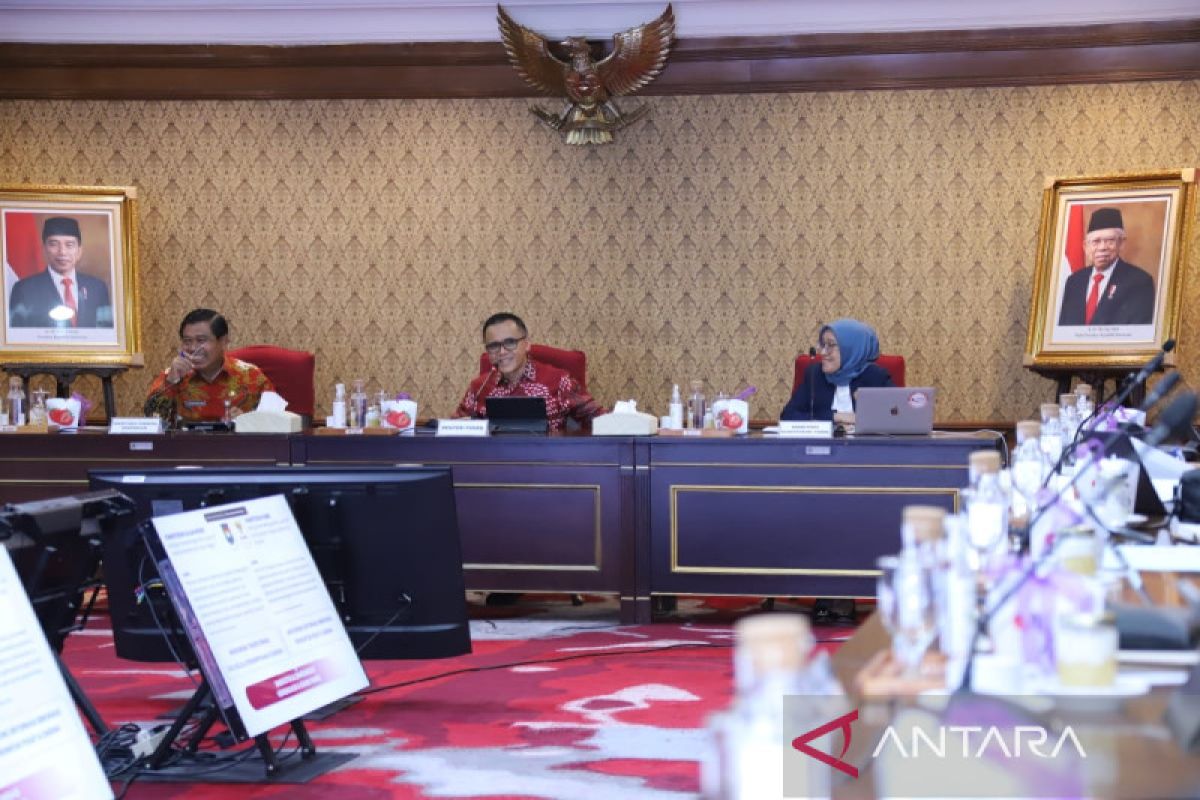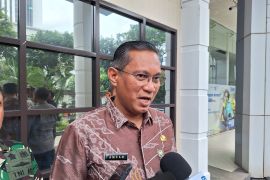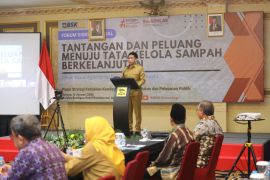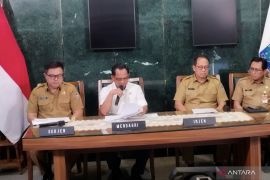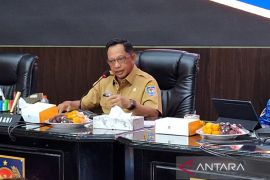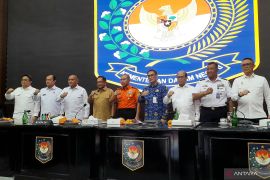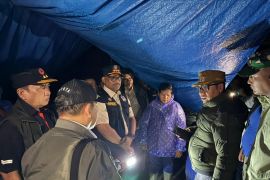"I and Mr Mendagri (Home Affairs Minister) are closely monitoring the existing challenges in regions related to the responsibilities of the two ministries in the hopes of immediately finding solutions to address them," PAN-RB Minister Abdullah Azwar Anas noted in a statement in Jakarta on Saturday.
He affirmed that the two ministries are working in line with President Joko Widodo's directives to collaborate instead of prioritizing their own egos and authorities, since ego would only hinder progress and be disadvantageous for the people.
Anas emphasized the need to foster synergy between the central and regional governments to accelerate the process of bureaucratic reform in regions.
"Therefore, today (June 16), we met with Kemendagri to discuss strategic issues faced by regional governments, and we aim to synchronize our policies in order to broaden the impacts," he affirmed.
Anas also lauded Home Affairs Minister Tito Karnavian for his remarkable performance and commitment to accelerating efforts to implement the president's directives.
He said both ministries have deliberated on various measures that can be undertaken to address the existing strategic issues. One of the issues pertains to ways to encourage the implementation of bureaucratic reform in regions.
"One of the issues is related to how to strengthen the assessment of the bureaucratic reform index indicator in the calculation process of the regional governments' employee additional income (TPP)," Anas noted.
The second and third issues concern efforts to further improve the quality of the regional government information system (SIPD) in order to boost regional governments' performance and their working systems, respectively.
Regarding the fourth issue, the two ministries are striving to provide adequate human resource management assistance to civil servants in regions, he remarked.
The assistance will involve efforts to offer services that are not proposed by regional governments and streamline the TPP scheme in the draft of government regulations (RPP) on civil servant management.
In addition, the ministries will provide support for consolidating resources and budgets for human resource development, position competency standards, and simplification of agency transfer services.
"Regarding agency transfer services, we all agreed to devise a scheme that can facilitate civil servants' mobility in a measurable manner and according to the needs of each regional government," he explained.
The fifth issue is related to the ministries' commitment to expediting the implementation of the public service mall (MPP) and digital MPP. Vice President Ma'ruf Amin will launch the digital MPP, he stated.
"We have found a way to collaborate with Kemendagri's population and civil registration team. Mr Mendagri shows tremendous support, so it is now only a matter of how to adopt facial recognition technology in regions, as it will become a database," Anas stated.
Furthermore, the sixth strategic issue is closely related to the management of public service complaints (SP4N-LAPOR!) and efforts to integrate public service innovations.
"Hopefully, today's meeting will facilitate Kemendagri, Kemenpan RB, and the National Civil Service Agency (BKN) in aligning their authorities that were previously considered as obstacles," Anas noted.
Kemendagri Secretary General Suhajar Diantoro said that both ministries need to accommodate several aspirations of civil servants in regions and resolve them jointly.
To that end, the two ministries agreed to formulate a one-stop service to integrate various services in all fields at the central and regional levels, he affirmed.
"We agreed to integrate services into a one-stop service, meaning that regions can benefit from the services offered by these three governmental agencies (Kemenpan RB, Kemendagri, and BKN). Hence, we opted for a one-stop service," Diantoro revealed.
He noted that this decision aims to facilitate, expedite, and synergize the services of Kemenpan RB, Kemendagri, and BKN to provide ease to civil servants in regions.
He also highlighted the importance of the three governmental agencies jointly managing and maintaining the SIPD.
Earlier, in December last year, the SIPD was designated as an Electronic-Based Government System (SPBE).
The SIPD functions as an information system that helps the government provide data and information on development progress in regions and digitally arrange planning, control, and evaluation of development in regions.
The information system is expected to serve as a reliable tool for realizing the thematic bureaucratic reform of digitizing government administration.
In addition, the system serves as a connecting bridge in the government's efforts to implement the concept of regional government digital transformation in SPBE and the Satu Data Indonesia website.
"After undergoing an audit process by BPKP (Financial and Development Supervisory Agency) and KPK (Corruption Eradication Commission), it must become our shared responsibility," he concluded.
Related news: Minister Anas looks to tidy up 27,000 apps using SPBE
Related news: Ministry simplifies bureaucratic reform evaluation
Translator: Narda Margaretha, Tegar Nurfitra
Editor: Anton Santoso
Copyright © ANTARA 2023
